ALERT: What DSA Parents Need to Know About Student Financial Aid
Learn the major changes in store for college families during these two school years. (click here)
The financial aid process can feel overwhelming. The good news is that help is available! DSA’s College Guidance Department has put together this Financial Aid page to help students and their families navigate this process. Please find the following information and resources on this page:
- Financial Aid Terminology
- Federal Aid
- Types of Aid
- Who Gets Aid
- Florida Office of Financial Aid
- Scholarships
- Florida Bright Futures Scholarships
- FAFSA: Apply for Aid
- General Tips and Tools
- Loan Repayment
- NASFAA Forms
- CAUTION!
- General Information
FINANCIAL AID TERMINOLOGY
Students and families applying for financial aid are often overwhelmed by the terminology and heavy use of acronyms within financial aid forms and literature. Below are some acronyms, terms, and definitions:
- FAFSA = Free Application For Student Aid
- FSA = Federal Student Aid
- EFC = Expected Family Contribution
- FPL = Federal Perkins Loan Program
- FSEOG = Federal Supplemental Educational Opportunity Grants
- FWS = Federal Work Study
- PLUS = Parent Loans For Undergraduate Students
- COA = Cost of Attendance
- FFEL = Federal Family Education Loan
- LEAP = Leveraging Educational Assistance Partnership
- SSIG = State Student Incentive Grant
- CPS = Central Processing
- SAR = Student Aid Report
Federal Pell Grants–a gift award that does not have to be repaid; ranges between $400 to $4,050 per year depending on need. Visit https://studentaid.gov/understand-aid/types/grants/pell for more information.
Federal Supplemental Educational Opportunity Grant (FSEOG)–additional gift to the especially needy to supplement the Pell Grant.
Florida Student Assistance Grant–need-based grants which provide assistance to Florida residents who are attending in-state colleges and universities. Grants range from $200 to $1,200 per academic year.
Florida Resident Access Grant–provides tuition assistance to Florida undergraduate students attending an eligible independent, non-profit Florida college or university. Amount varies depending on available funds.
Federal Family Education Loan Program–offers loans by private lenders to students and/or parents who demonstrate financial need.
Subsidized Federal Stafford Loan–loans up to $2,625 for first-year students. Interest paid by federal government, and repayment begins six months after student leaves school. Visit https://studentaid.gov/understand-aid/types/loans/subsidized-unsubsidized for more information.
Unsubsidized Federal Stafford Loan–available to those who do not demonstrate need. Borrower is responsible for all interest that accrues from date of disbursement.
Federal PLUS Loan–no-need parent loan with variable interest rate capped at 9%. Repayment must begin within 60 days of disbursement.
Federal Perkins Loan–need based, low-interest loan up to $3,000 awarded by the college at low interest rate to those with exceptional need.
College Work Study—federally-funded program that enables qualified students to work part-time on campus.
D.O.E. Scholarship Programs (subject to state legislation)–awards offered through state agencies based on academic merit rather than financial need.
FEDERAL AID
Will you need a loan to attend college? If so, think federal aid first. Federal student loans usually offer borrowers lower interest rates and have more flexible repayment terms and options than private student loans.
Find the Federal Student Aid Loan Programs Fact Sheet here.
TYPES OF AID
Financial aid is money to help pay for college or career school and can come from a variety of sources.
Find types of aid information here.
WHO GETS AID
Different types of aid (e.g., private scholarships, state grants, federal loans, etc.) have different rules, called eligibility criteria, to determine who gets the aid.
Find aid eligibility information here.
FLORIDA OFFICE OF FINANCIAL AID
The Florida Department of Education, Office of Student Financial Assistance (OSFA) serves as a guarantor for the Federal Family Education Loan Program (FFELP), and the administrator of Florida’s scholarship and grant programs.
Find the Florida Office of Financial Aid here.
College will cost you; waiting will cost you more. Learn now about Florida’s prepaid college plans.
SCHOLARSHIPS
There are four main sources for scholarships: federal, state, institutional, and local. An updated DSA Scholarship List is available in the College Center and provides deadlines, dollar amounts, and links to local scholarships.
Follow these links to find out more about these different kinds of scholarships and grants:
- Scholarship.org: provides an online resource center and research library which presents websites related to planning for college, financial aid opportunities, and information about colleges and universities.
- uncf.org: offers a host of information opportunities and resources for minority students, especially those interested in attending Historically Black colleges or universities.
- hispanicfund.org: provides scholarship information and resources for Hispanic students.
- collegefund.org: has scholarship information and resources for American Indian students.
- FastWeb: offers a quick and easy way to find scholarships and your dream school.
- College Express: is a great search engine for colleges, loans and scholarships.
- The SmartStudent Guide to Financial Aid: offers a comprehensive listing of financial aid opportunities, including information on ROTC programs.
- The Princeton Review: provides online applications and services to improve your SAT score.
- Scholarships.com: provides free college scholarship searches and financial aid resources.
FLORIDA BRIGHT FUTURES SCHOLARSHIPS
See Mrs. Jimenez for more information
Divine Savior’s students are eligible to qualify for one of two Bright Futures Scholarships: the Florida Medallion Scholars Award (FMS) or the Florida Academic Scholars Award (FAS). Students who may qualify should register online at https://www.floridastudentfinancialaidsg.org/SAPPRFILE/SAPPRFILE in early January of their senior year.
Both awards are renewable for four years with GPA requirements. Other ways to qualify are to be a National Merit or National Achievement Scholarship Finalist.
Important notes about Florida Bright Futures:
- Students are required to submit a complete, error-free FAFSA for Bright Futures, Florida Resident Access Grant, and Access to Better Learning and Education Grant initial and renewal eligibility any time prior to disbursement. No FAFSA = no money.
- The award is activated at the beginning of the academic year after the student graduates (which begins in the fall). Students who enroll in a school for the summer will not be awarded any monies for that semester. In rare instances, the Department of Education (DOE) will distribute funds if they are available.
- The GPA from DSA and the GPA calculated by the DOE are different. Because of this we encourage students whose GPA falls a little short of the requirement to still register as in some instances, depending on where your grades are strongest, you may have a higher GPA from the DOE.
- Apply during the last year in high school, before graduation, or forfeit all future eligibility for a Bright Futures Scholarship.
Important information on Reinstatement/Restoration:
- If an eligible student did not receive scholarship funds for the last academic year (fall through spring), a Reinstatement/Restoration Application must be completed and is available on the OSFA website at https://www.floridastudentfinancialaidsg.org/SAPHOME/HOME to reinstate the scholarship. Select the links State Grants, Scholarships & Applications, Apply Here, and then Reinstatement/Restoration Application. New applications are available in February each year.
- A student must receive funding within three years after high school graduation or apply for reinstatement within three years after high school graduation.
- OSFA recommends that reinstatement applications be submitted online by July 1, for a timely fall disbursement or by December 15 for a timely spring disbursement. The deadline for submission of previous academic year reinstatement applications for both fall and spring (or equivalent) is generally May 30.
- If determined eligible for reinstatement, the student will receive the Bright Futures award (FAS, FMS, or GSV) for which the student was last eligible prior to reinstatement.
Find more information about Florida Bright Futures here.
FAFSA: Free Application for Federal Student Aid
To apply for federal student aid, you need to complete the Free Application for Federal Student Aid (FAFSA). Completing and submitting the FAFSA is free and easier than ever, and it gives you access to the largest source of financial aid to pay for college or career school.
Find FAFSA information here.
GENERAL LINKS, TIPS & TOOLS
LOAN REPAYMENT
Understanding the repayment process for your federal student loans can go a long way toward building a solid financial foundation.
https://studentaid.gov/manage-loans/repayment/plans
CAUTION!
Be wary of companies that claim millions of dollars in scholarship money go unused or charge a fee for doing a college scholarship search. To lure you in, they may provide the names and addresses of dozens of sources, but often what you get is nothing more than what is available for free on the Internet. Stay away of such companies that:
- make statements or promises of guaranteed winnings (“This scholarship is guaranteed or your money back!”)
- suggest or claim that everyone is eligible
- pressure you to respond quickly to their offer (“You must agree to terms now or scholarship will be withdrawn.”)
- request unusual personal/financial information (“May I have your credit card number or bank account number to hold this scholarship?”)
- require a high application fee (“This scholarship will cost you some money.”)
- have typing and spelling errors in their brochure or application
- mention special consideration (“You’ve been selected by a ‘national foundation’ to receive a scholarship,” or “You’re a finalist in a contest,” that you didn’t enter)
Beware – do not pay money to get money!
National Fraud Information Center (877) 382-4357
GENERAL INFORMATION
How to Pay for College – Looking for help paying for college? Try these 10 tips.
Dos and Don’ts of Negotiating Tuition Aid – Encourage students to earn more money for college with these tips.
4 Tips to Help Students Be Financially Responsible
Understanding Financial Aid Forms








